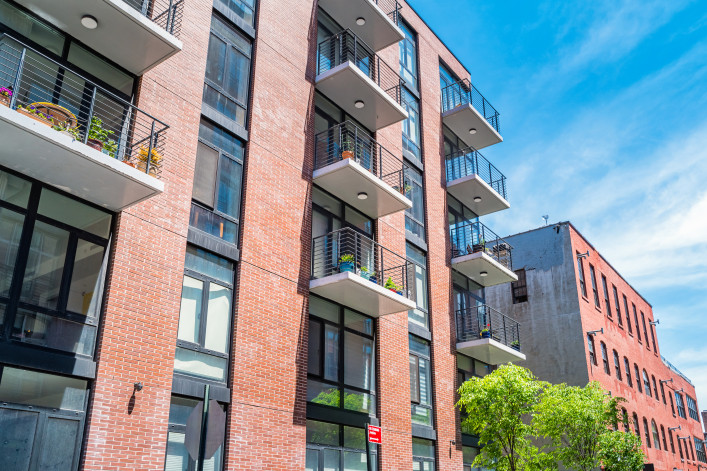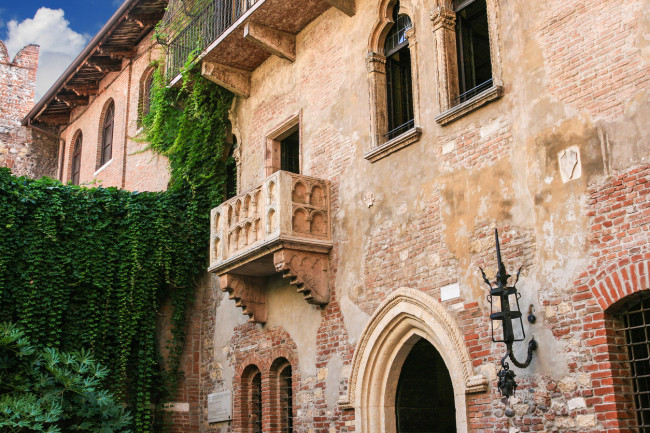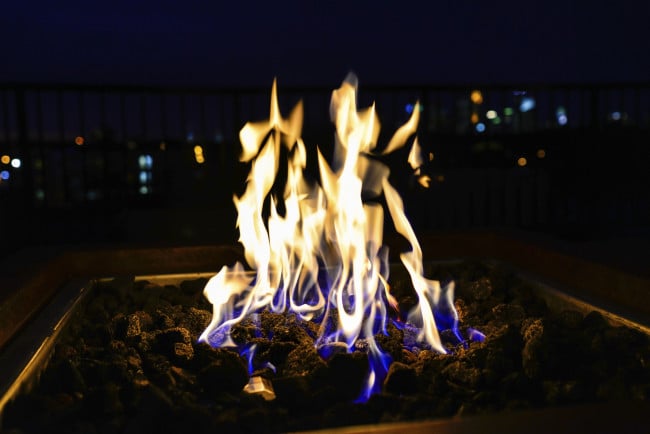10 things to consider before living in a NYC apartment with a balcony

Before you move into an apartment with a balcony, consider its size, which direction it faces, and what the building allows on it.
iStock
You would think a balcony makes living in a New York City apartment a little bit nicer, right? After all, you get a little bit of private outdoor space, plus you can keep the door open for fresh air—and good ventilation is more important than ever in the Covid era.
But not all balconies are alike and that's something to keep in mind if you are apartment hunting. You might want a balcony to escape from constant Zoom calls in your apartment, but you may wind up dealing instead with pigeons, leaks, and other maintenance issues.
The first thing you should consider when looking at an apartment with a balcony is the overall condition of the building, says Rowena Dasgupta, a broker at Warburg Realty. “Safety is the first concern and you should ask how strong the balcony is and how much weight it can hold, especially if it’s an older building.”
You also need to be aware of the building’s bylaws and house rules, says Tara King-Brown, a broker at Corcoran. Most buildings have a separate section in the lease or house rules specifically for a balcony, like if you can smoke out there.
Liability is another thing to keep in mind, says Shaun Pappas, a partner at Starr Associates. If the wind blows your outdoor furniture off and it injures someone (it happened to this New Yorker last year), then you would be held liable. So you also have to be smart with what you store out there.
Keep reading for 10 things to consider when living in an apartment with a balcony, and how to make sure it’s the right outdoor space for you.
1. It might be noisy
Obviously, if your balcony faces a busy street, school, bar, or restaurant with outdoor dining, it is going to be noisy out there. What you may not realize is that a balcony—which usually has sliding glass doors, can mean more noise inside your apartment than a regular wall. So think about where the balcony is located and whether noise inside is going to be a problem.
2. It all depends on the weather (and wind)
Unless it’s a covered or an enclosed balcony, you probably won’t get much use out of it during the colder months. You also need to consider how high up you are. “The higher the floor, the colder it will be,” Dasgupta says. Wind is also an issue: If you’re on the 15th floor, you will probably use it a lot less.
If you’re renting and want to enclose it, check out your building’s rules, King-Brown says. For buyers who want to permanently enclose it, you have to consider the zoning of the building. “You would be turning an exterior space into an interior space, and the square foot of the apartment might already meet the building’s floor-area-ratio,” she says.
3. What and where is it facing?
If you’re expecting some sun for you or your plants, you need to consider which way it’s facing. If it’s facing north, then you will get little sunlight, Dasgupta says. A south-facing balcony is optimal, but you can also get sunlight on an east- or west-facing balcony at certain times during the day. (Pro tip: You can pull out your iPhone and use its compass to figure this out ).
King-Brown says you should also consider how far the balcony is from the adjacent building. If it faces south, but it’s close to the building next door, then you might not get optimal sunlight.
4. Upkeep is on you
Maintaining your balcony is on you. In the fall, you’ll have to keep leaves off the balcony and in the winter, you have to remove any ice and snow. Your lease might even outline what upkeep is required of you.
Another messy issue: If your balcony is larger than those above you, any falling debris from above like cigarette butts might land on your balcony. (Although with a little detective work you can usually find out who the culprit is.)
5. Pigeons and pests
Pigeons are a part of NYC life and they're really annoying to balcony owners, because of their habit of perching on a balcony and leaving droppings. If it bothers you, you might choose to install spikes along the railing that will prevent pigeons from landing there. However, Dasgupta says she’s never experienced a building take care of this, so the solution would be up to you.
If you’re on a lower floor, or have a terrace on the ground floor, then you should also consider that other pests like bugs and mice will have easier access.
6. Know which grills you can use
It's very tempting to have a barbecue or fire pit on your balcony, but New York City Fire Code forbids grills that use propane or charcoal, and fire pits are banned as well because of their open flame. But electric grills are allowed, and so are gas-fed grills, as long as they are professionally installed and inspected, but you should check your building’s rules before investing in one.
Another solution is to look for buildings where the developer has included a gas hook-up for a grill on the balcony, King-Brown says. The developers at 100 Barclay, a landmarked building in Tribeca, did this.
7. It’s not a storage unit
A balcony might seem like an ideal storage space, especially one that you can't really enjoy because of noise or pigeons, but keeping lots of stuff out there it is likely prohibited by your building. Pappas says a good lease will outline that personal items shouldn’t be stored.
When it comes to seasonal outdoor furniture, you might be required to bring it inside, cover it, or make sure it’s secured. If you have to bring it inside, consider where you can keep the furniture. You should also aim to buy wind-proof and sturdy furniture to prevent any mishaps. Even cushions and planters should be secured.
8. Beware of the Juliet balcony
When you’re looking online for an apartment with a balcony, some apartments might turn out to have a Juliet balcony. These really don't give you any outdoor space, Dasgupta says. They are essentially large windows that allow you open to let in fresh air, but have no space for standing or sitting outside.
9. Smoking, noise, and other building rules
Generally, if a building has a hard no smoking policy, then it would also apply to your balcony, Pappas says.
But, in some cases, a building will prohibit you from smoking in common areas, but will allow smoking on your private balcony. However, if the smoke starts to bother a neighbor then you might be asked to stop. And, if you’re subletting in a building that allows smoking, the owner of the unit might decide to prohibit you from smoking out there.
When it comes to noise, you should follow the same rules that pertain to inside your apartment. If you violate any of your building’s policies on the balcony, you can expect the same recourse as if it were inside, which could mean fines or a termination of your lease, Pappas says.
10. Your building has a right to use it for facade work
Buyers need to check to see when the last time the building inspected their facade, King-Brown says. Local Law 11 mandates that all buildings six floors or higher must have their facade inspected every five years.
If the facade work hasn’t been recently inspected or worked on, then your building might have the right to access your balcony to work on the facade, and can even deem the outdoor space not usable for several months, King-Brown says.
You Might Also Like





























